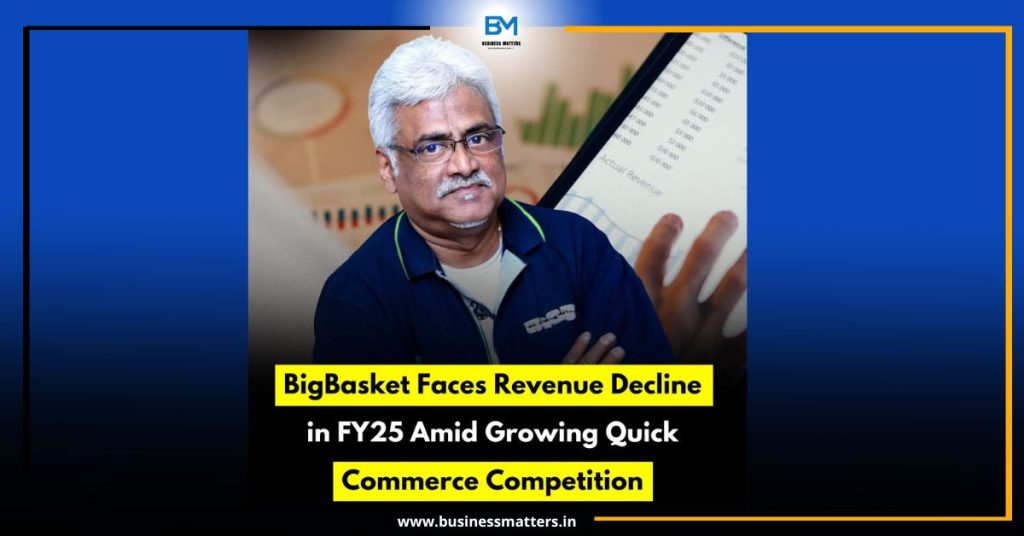India’s leading online grocery retailer, BigBasket, is facing turbulent times as it reported a significant revenue decline in FY25, a stark contrast to its previously robust growth. The primary reason behind this downturn is the intensifying competition from quick commerce platforms like Blinkit, Zepto, Swiggy Instamart, and Dunzo, which are rapidly reshaping the online grocery landscape.
Decline in Revenue
According to industry sources and financial reports, BigBasket witnessed a year-over-year revenue drop for the first time in several years. Analysts attribute this decline to the changing consumer behavior, where speed and convenience have become top priorities. While BigBasket has traditionally focused on scheduled deliveries and a wider product assortment, quick commerce platforms are now fulfilling orders in under 15–30 minutes, drawing away a significant chunk of urban, time-sensitive customers.
Read Also :- Amagi Media Labs Files DRHP with SEBI to Raise INR 1,020 Cr via IPO
The Rise of Quick Commerce
The quick commerce model has grown exponentially in India over the past two years. Platforms like Blinkit and Zepto have invested heavily in dark stores, real-time inventory systems, and logistics to deliver groceries and essentials in record time. This model appeals especially to Gen Z and millennial consumers living in metros, who prioritize instant gratification and are willing to pay a premium for ultra-fast delivery.
As a result, these companies have rapidly increased their market share in cities like Bengaluru, Mumbai, Delhi, and Hyderabad—key markets where BigBasket once enjoyed dominance.
Operational Challenges for BigBasket
BigBasket, backed by Tata Digital, continues to operate with a scheduled delivery model, offering next-day or same-day delivery for a wide range of SKUs. However, the quick commerce revolution has forced it to re-evaluate its strategy. While the company has launched BB Now, a 30-minute delivery service in select cities, it is still in the early stages compared to its aggressive competitors.
The high cost of infrastructure, last-mile delivery challenges, and the need to maintain inventory efficiency across two business models (traditional e-grocery and quick commerce) have further strained BigBasket’s operations.
Strategic Response and Future Outlook
In response to the growing threat, BigBasket is expected to expand its quick commerce services, enhance its mobile app experience, and offer personalized promotions to retain its existing customer base. It is also exploring partnerships with local Kirana stores and using AI-driven demand forecasting to optimize inventory and reduce wastage.
However, regaining lost ground won’t be easy. The quick commerce market is becoming a battleground with deep-pocketed players and aggressive marketing tactics, leaving little room for error.


